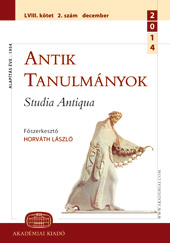
We kindly inform you that, as long as the subject affiliation of our 300.000+ articles is in progress, you might get unsufficient or no results on your third level or second level search. In this case, please broaden your search criteria.

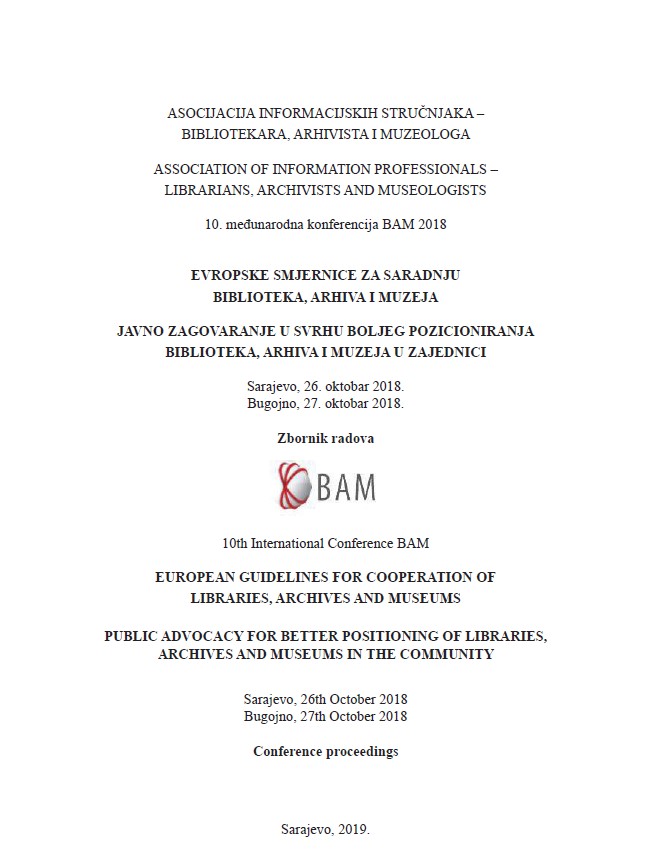
The University Library “Svetozar Marković” in Belgrade, as one of the leading scientific institutions in Serbia, has a standing, four-year long cooperation with Wikimedia Serbia and, as a result, we have a joint project called Wiki Librarian. The initial idea was to establish cooperation with libraries across Serbia, and later it was expanded to also include other GLAM institutions. The main goal of the project is to shift (enlist) as many cultural institutions online. As the largest online, encyclopedia in the world, Wikipedia serves as the main platform to achieve this goal. The Wikipedia articles are continuously being updated by adding or editing text or photos. On Wikimedia Commons platform, one can post photos and other multimedia content with strict adherence to the copyrights and rules, so essentially everyone has an undisturbed access at any time. A number of articles about libraries in Serbia, the region and the wider have been posted, which enabled them to learn more about them and to emerge from the shadow of anonymity.
More...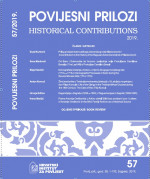
Based on the studies of genealogical prosopography, the paper expands the knowledge about the Besali family, originating from Bar in the mid-16th century and extinguished in Dubrovnik in the mid-17th century. The document, although related basically to one of its members, contains some unknown facts that complement the resumes of his closest relatives and friends, enlightening the whole social era. The State Archives in Dubrovnik preserve eight pages of a document registered on March 23, 1590, which contains the testament and the codicil of Prokulijan Camillo’s Besali, made on 10 and 19 November 1589 in Ancona, along with the distribution made according to these wills in the period between 1 December 1589 and 1591/95. The source provides a specific insight into the lives of the Besali family members who were moving and settling in both sides of the Adriatic. Significant geopolitical changes and threats to security caused them to leave their homeland and reside or stay for prolonged periods in different cities, trying to recreate and continue their existences in those areas. This confirms the permeation of cultural horizons and the interdependence of the Adriatic and Mediterranean spaces. Because of his personal name, coming from his mother’s family, historiographers have long confused Prokulijan Besali with his renowned father. By throwing light on his activity, it has been revealed that the testator, who resided in Ancona, was involved in trade, financially supported by the capital of Dubrovnik’s and Italian traders. Prokulijan’s abiding in Italy not only did not raise the issue of assimilation, but also opened much greater opportunities for the provision of commodities, borrowings, investments, and social ascent. Judging from Besali’s accounts, his trade routes from Ancona and the Marche may have included Venice, Milan, Florence, and the Levant. Among his business associates some very prestigious names have been recognized. Perhaps because of this, and not due to the lack of competence in managing his business ventures, the formulations of his last will speak much more about the settlement of obligations than about the collection of debts. The executors of his last will, and, given the way of expressing his emotions over the legacies, surely his close friends, belonged to Dubrovnik’s noble lineages of Resti and Gundula.
More...
The Brlić family archive preserves letters written by Antonije Orešković to Andrija Torkvat Brlić from 1857 to 1868. Their acquaintance and correspondence were fundamental to the revival of the relations between the People’s Party and the Principality of Serbia in a crucial period of the final state transformation of the Habsburg Monarchy in 1867, which also determined Croatia’s position in the long run. During that decisive period, the People’s Party and Bishop Strossmayer subordinated their policies to a contractual program with Serbia aimed at creating an independent South Slavic state.
More...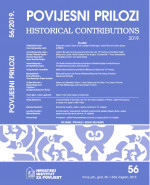
The register of Zadar’s Fraternity of Blacksmiths is preserved at the Scientific Library in Zadar. Based on the text of the register, the author has examined the basic regulations of the Fraternity of Blacksmiths in order to reconstruct its activities and the names of its members. The investigated documentation has been compared with the previously published scholarly literature on the Fraternity of Blacksmiths and the incomplete 19th century presentation of the register by Vitaliano Brunelli has been complemented. The aim of the paper is to indicate that the Fraternity of Blacksmiths in Zadar was established before 1490, contrary to what Brunelli erroneously stated, and to raise questions about its possible links to the Fraternity of Goldsmiths in Zadar.
More...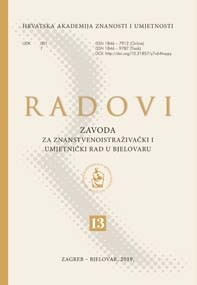
Archival guides are frequently very lengthy, since they comprise the complete holdings of an individual archive; they are therefore disorganised, and to some researchers even discouraging. This paper presents the holdings collected in the course of operation of civil service, judiciary and the Military Border in the period from the founding of the town of Bjelovar to 1941, and relating to the town of Bjelovar. The thematic guide form has been chosen in order to present the oldest and the most fragmented materials that relate to the legal and administrative life of the town in one single place. Thanks to this type of approach, detailed listing of archive units in all the holdings was made possible. In order to unite all the sources of the history of the town, a list was composed including all the archive material holdings from the Bjelovar area, kept at the following Croatian heritage institutions: Croatian State Archive, State Archive in Bjelovar, and the Bjelovar Town Museum. The subject holdings include an abundance of concrete information on the town’s development, the functioning of institutions and the organization of life in the town. The objective of the paper is to familiarize all the potential researchers of the history of Bjelovar with this archive material.
More...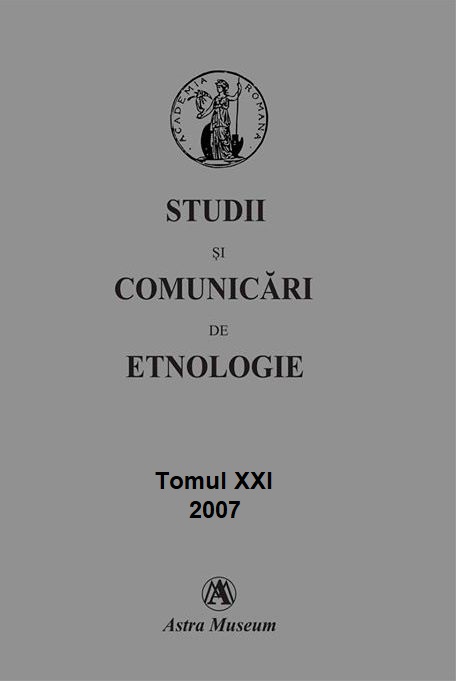
Tout d’abord, parce que l’Association des Folkloristes et des Ethnographes du département de Sibiu (l’une des prémieres associations scientifiques du pays) avaient comme principaux objectifs la fondation d’une archive de folklore et la publication d’un bulletin scientifique intitulé Etudes et communications. Deuxiémement, pour le recueil, la recherche, la conservation et la mise en valeur de la création populaire de Transylvanie.L’étude présente un court historique de l’archive, des réflexions en ce qui concerne les fonds de manuscrits et quelques dates concernant les collaborateurs de l’archive.
More...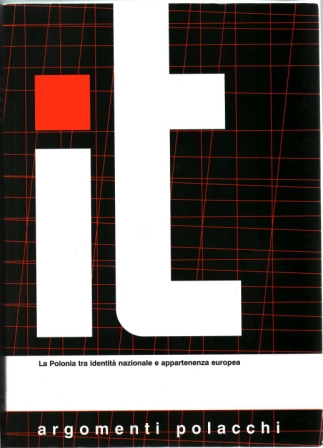
Nelle ricerche che ho condotto in Polonia fra la fine degli anni Settanta e gli anni Ottanta, sulla storiografia polacca nel secondo dopoguerra, la documentazione di cui si poteva disporre era costituita dalle fonti accessibili e da quelle che lo studioso si doveva costruire.
More...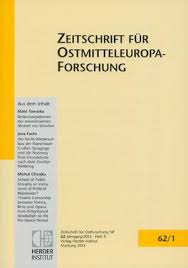
Review of: Die Hungarica Sammlung der Franckeschen Stiftungen zu Halle. Hrsg. von Brigitte Klosterberg und István Monok. Reviewed by Detlef Haberland; Porträts. Bearb. von György Rózsa und Attila Verók. (Hallesche Quellenpublikationen und Repertorien, Bd. 7.) Verl. der Franckeschen Stiftungen – Niemeyer Verlag. Halle – Tübingen 2003. XXX, 269 S., zahlr. Ill. ISBN 3-931479-33-1 – 3-484-84107-9. (€ 42,–.). Reviewed by Detlef Haberland; Historische Karten und Ansichten. Bearb. von László Pászti und Attila Verók. (Kataloge der Franckeschen Stiftungen, Bd. 22.) Verl. der Franckeschen Stiftungen. Halle 2009. 103 S., zahlr. Ill., Kt. ISBN 978-3-939922-14-8. (€ 16,–.). Reviewed by Detlef Haberland; Handschriften. 2 Teilbde. Bearb. von Zoltán Csepregi. (Adattár XVI-XVIII. századi szellemi mozgalmaink történetéhez / Materialien zur Geschichte der Geistesströmungen des 16.-18. Jahrhunderts in Ungarn, Bd. 39/1-2.) MTA Könyvtár és Információs Központ. Budapest 2015. XXIV, 1158 S. ISBN 978-963-7451-25-6. Reviewed by Detlef Haberland; Alte Drucke 1495-1800. 2 Bde. Bearb. von Attila Verók. (Adattár XVI-XVIII. századi szellemi mozgalmaink történetéhez / Materialien zur Geschichte der Geistesströmungen des 16.-18. Jahrhunderts in Ungarn, Bd. 40/1-2.) MTA Könyvtár és Információs Központ. Budapest 2017. XLII, 1235 S. ISBN 978-963-7451-33-1, 978-963-7451-34-8. Reviewed by Detlef Haberland.
More...![Archiwum Ringelbluma. Konspiracyjne Archiwum Getta Warszawy. [Das Ringelblum Archiv. Das Untergrundarchiv des Gettos Warschau.] Bd. 6-13](/api/image/getissuecoverimage?id=picture_2016_54913.jpg)
Review of: Archiwum Ringelbluma. Konspiracyjne Archiwum Getta Warszawy. [Das Ringelblum Archiv. Das Untergrundarchiv des Gettos Warschau.] Bd. 6: Generalne Gubernatorstwo. Relacje i dokumenty. [Generalgouvernement. Berichte und Dokumente.] Bearb. von Aleksandra Bańkowska . Żydowski Instytut Historyczny im. Emanuela Ringelbluma [ŻIH]. Warszawa 2012. XLVI, 708 S., Ill., graph. Darst., Kt., CD-ROM, engl. Zus.fass. ISBN 978-83-61850-13-7; Bd. 7: Spuścizny. [Nachlässe.] Bearb. von Katarzyna Person . ŻIH. Warszawa 2012. XXI, 438 S., CD-ROM, engl. Zus.fass. ISBN 978-83-61850-25-0; Bd. 8: Tereny wcielone do Rzeszy: Okręg Rzeszy Gdańsk-Prusy Zachodnie, rejencja ciechanowska, Górny Śląsk. [Die vom Deutschen Reich einverleibten Gebiete: Reichsgau DanzigWestpreußen, Regierungsbezirk Zichenau, Oberschlesien.] Bearb. von Magdalena S i e k . ŻIH. Warszawa 2012. XXIV, 280 S., Kt., CD-ROM, engl. Zus.fass. ISBN 978-83-61850- 21-2; Bd. 9: Tereny wcielone do Rzeszy: Kraj Warty. [Die vom Deutschen Reich einverleibten Gebiete: Warthegau.] Bearb. von Magdalena S i e k . ŻIH. Warszawa 2012. XXIV, 280 S., Kt., CD-ROM, engl. Zus.fass. ISBN 978-83-61850-17-5; Bd. 10: Losy Żydów łódzkich (1939-1942). [Das Schicksal der Juden von Litzmannstadt/Lodz (1939-1942).] Bearb. von Monika Polit . ŻIH. Warszawa 2013. XXIII, 287 S., Kt., CD-ROM, engl. Zus.fass. ISBN 978-83-61850-77-9; Bd. 11: Ludzie i prace „Oneg Szabat“. [Die Mitglieder und die Arbeitsbereiche der Gruppe Oneg Schabbat.] Bearb. von Aleksandra Bańkowska und Tadeusz Epsztein . ŻIH. Warszawa 2013. LXXII, 428 S., Kt., CD-ROM, engl. Zus.fass. ISBN 978-83-61850-81-6; Bd. 13: Ostatnim etapem przesiedlenia jest śmierć: Pomiechówek, Chełmo nad Nerem, Treblinka. [Die letzte Etappe der Umsiedlung ist der Tod: Pomiechówek, Kulmhof am Nehr, Treblinka.] Bearb. von Ewa W i a t r , Barbara Engelking und Alina Skibińska . ŻIH. Warszawa 2013. VI, 243 S., Ill., Kt., CDROM, engl. Zus.fass. ISBN 978-83-61850-85-4. Reviewed by Klaus-Peter Friedrich.
More...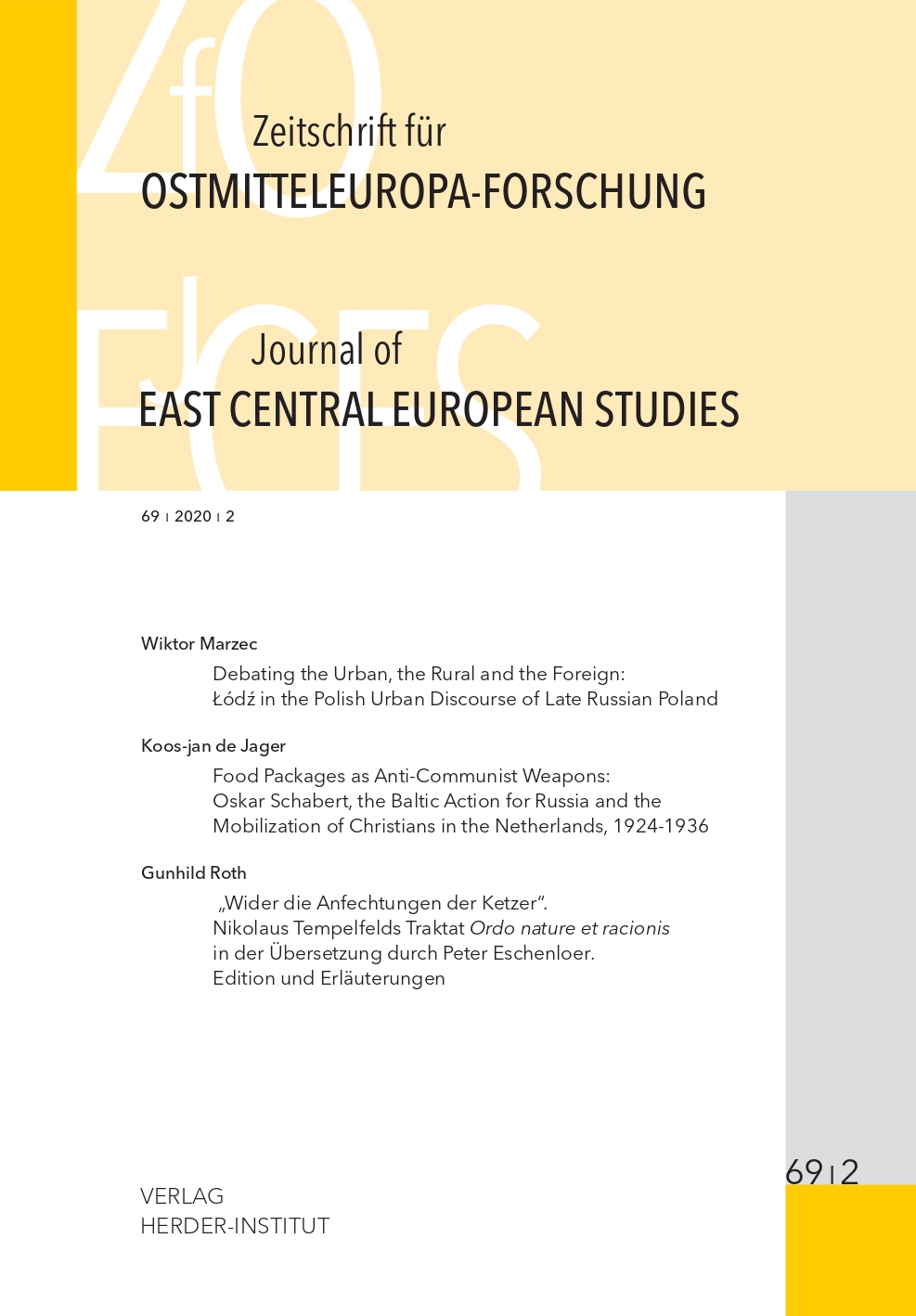
Review of Tobias Winter: Die Deutsche Archivwissenschaft und das „Dritte Reich“. Disziplingeschichtliche Betrachtungen von den 1920ern bis in die 1950er Jahre. Duncker & Humblot. Berlin 2018. 606 S. ISBN 978-3-428-15484-5. (€ 99,90.). Reviewed by Klaus-Peter Friedrich.
More...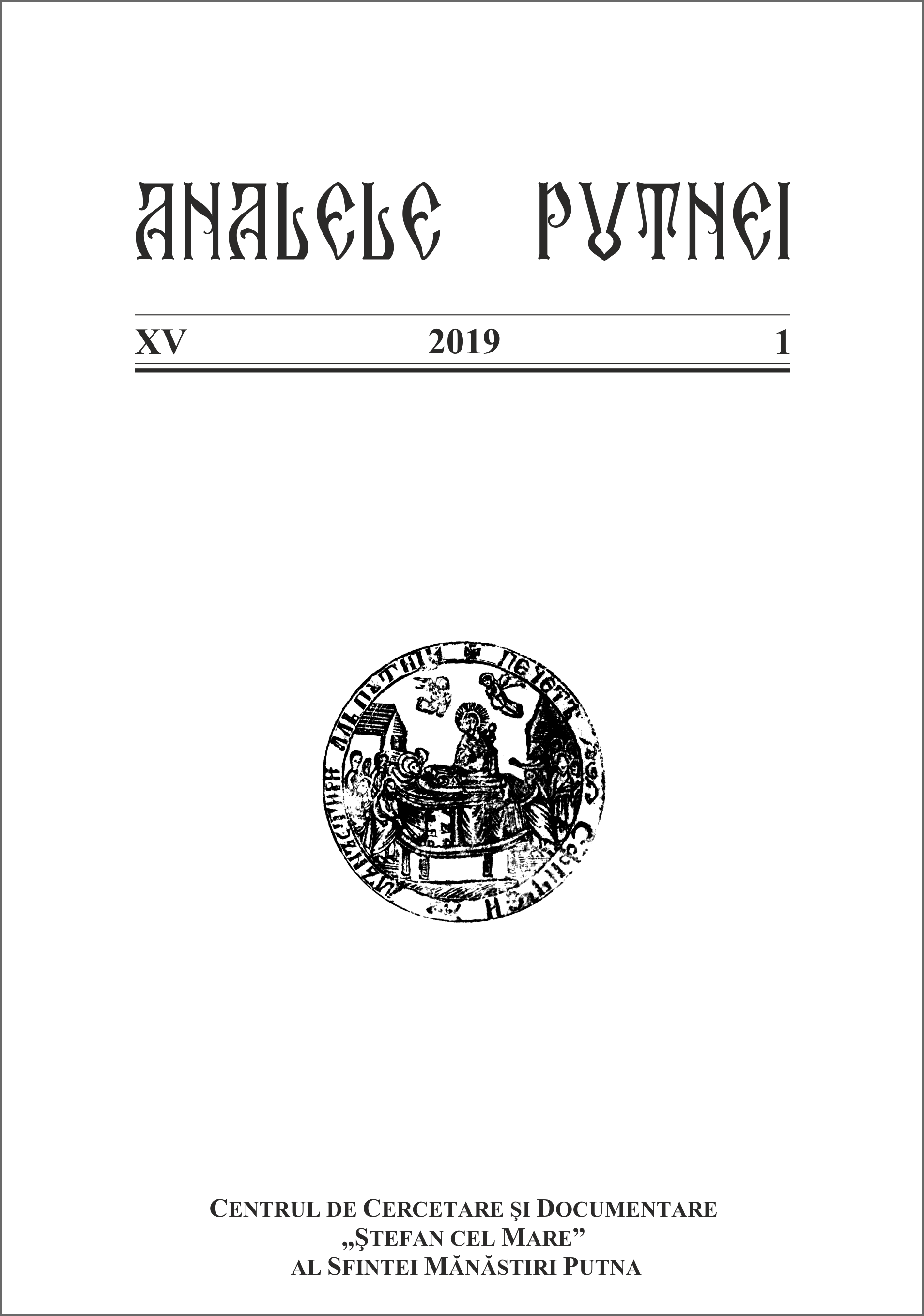
The present paper discusses an unpublished collection of documents compiled by the historian from Bukovina Teodor Balan in the sixth decade of the past century. The series is entitled “The documents of the monasteries from Bukovina” and comprises an introductory volume, called Study, which presents a short history of the 17 monasteries from Bukovina, and 12 volumes comprising documents issued between 1402 and 1875, totaling 1113 princely charters, registers, inventories, property documents etc. handwritten on 4000 pages. Balan’s intention was to offer researchers a thematic corpus, gathering together documents from various publications, some which are not easily accessible, with a lot of the documents being hitherto unpublished. Many documents are followed by summaries of other related documents, as well as by explanations, identifications of persons and of places etc. The manuscript is preserved in the collections of Suceava National Archives. The author argues that the publication of Balan’s manuscript is worthwhile and will provide researchers with a valuable instrument which will soon become indispensable.
More...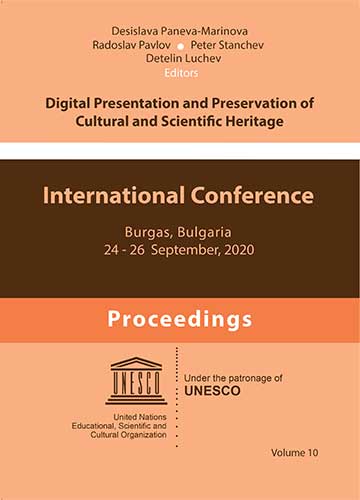
This paper gives an overview of the current efforts of National Library “Ivan Vazov” in the field of digitization. It focusses on the technical aspects of a digitalization project, involving OCR and provides insight into the library’s joint efforts with its partners to develop relevant tools and methodologies.
More...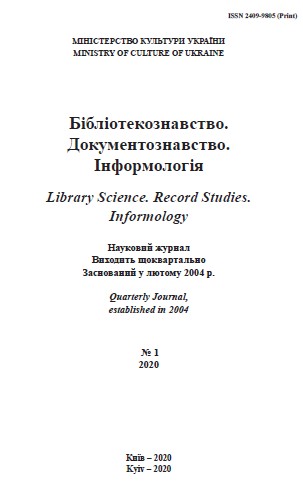
The purpose of the article. The research is devoted to the elucidation of the current state of document science in Ukraine, to identify the main problems of its development as a scientific and educational discipline, which contradicts the development of the specialty 029 «Information, library and archival affairs», overcoming the epistemological and organizational crisis of the science of document. The methodology of the study is to apply historical-genetic, comparative, formal-logical, modeling and generalization methods. These methods make it possible to fully disclose the content of the current crisis of document science, to identify cause and effect relationships, and to foresee possible ways to overcome it in accordance with the needs of society and the internal potential of the science itself. The scientific novelty of the research lies in the scientific understanding of the current state of document science in Ukraine. A comparative approach to the development of traditional document science and documentоlogia has opened up the possibilities of dialectical communication between them, and at the same time has fostered an understanding of the identity of each field. In addition to management, other types of specialized document science, such as electronic and audiovisual, were noted. The success of documentary education in Ukraine depends on the conscious activity of the subjects of the educational services market and the relevance of educational offerings to the needs of the profession of the documentary. Conclusions. Understanding the newest paradigm of science will facilitate the emergence of document science from the crisis, which will mark the next stage of its evolution.
More...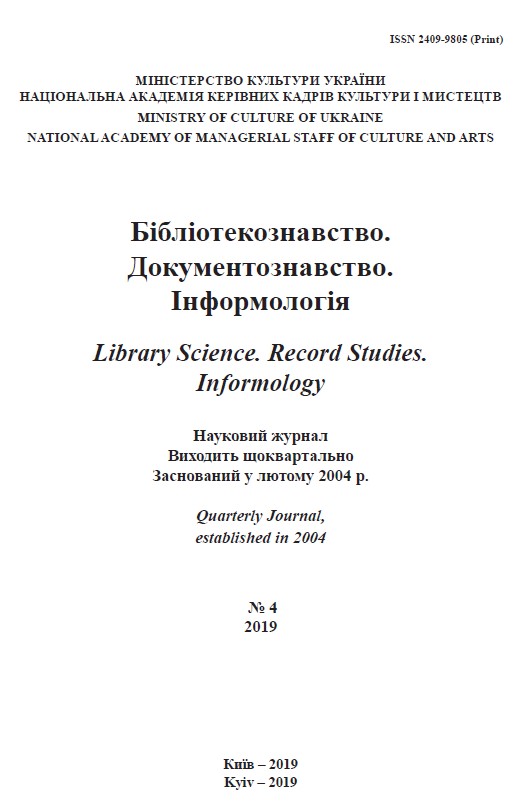
The purpose of the article is to analyze biobibliographic, thematic bibliographic and metabiographic editions of the period of independence of Ukraine, dedicated to the heroes-fighters for independent Ukraine 1917–1921, as well as bibliographic editions that include materials about these events in the context of formation of collective memory and national consciousness of the Ukrainian people, as well in the context of processes of the decommunization and creation of the national Ukrainian bibliography. The methodology of the research is to apply the principles of historicism, systematic-comparative, and source analysis. Scientific novelty: it was the first attempt in the Ukrainian bibliography to explore the history of going out and content of the bibliographic indexes dedicated to the heroes of the liberation struggle in 1917–1921. Conclusions. Longlasting non-recognition by the leadership of the state of the fighters for the independence of Ukraine of 1917–1921 as national heroes had a negative impact on the preparation of biobibliographical aids, dedicated to these figures, hindered the formation of the collective memory of the Ukrainian people and increased bifurcation of national consciousness of citizens. The revolutionary events at the turn of 2013–2014, the beginning of the Russian aggression against Ukraine and adoption of the law on decommunization did not deprive Ukrainian society of ambiguous attitude to national heroes of the liberation struggle 1917–1921. An example of this is the metabibliographic aids of the leading national libraries of Ukraine. The methodology of their conclusion is an obstacle to the creation of the Ukrainian national bibliography, which would be stand out among the Russian and Soviet.
More...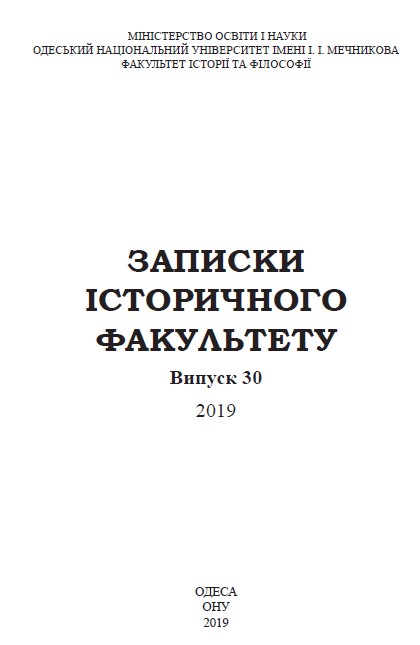
Until 2005, the protocols of the meetings of the Odesa Provincial Commission Extraordinary Committee were kept in the archive unit of the Office of the Security Service of Ukraine in Odesa oblast as "completely secret" and were not issued to researchers. In 2005, these documents were transferred to the Branch State Archive of the SBU. The archival and investigative cases, which are in temporary storage in the archival unit of the Ukrainian Security Service in Odessa Oblast, belong to two funds: "Main" and "Suspended". There are no descriptions of these funds, so the exact number of cases that they contain is unknown. Until 2015, the cases of the "Main" fund have not been available to researchers; access to the "Suspended" fund cases was limited and complicated. The main thesis of the article is that without the study of these archival materials, a comprehensive analysis of political terror is impossible. Of particular importance are the minutes of the meetings of the OHNK Board, which cover the period from February 28, 1920 to March 25, 1922. They include four main categories: "Present", "Reviewed", "Resolved" and "Marked as completed". The list of the present persons included the head of the OHNK, the secretary and members of the OHNK board. In the category "Reviewed", the full name, patronymic of the person, and their age were indicated. The obligatory attribute of this part of the protocol was the indication of what the particular person or group of individuals were accused of. The category "Resolved" contained the surname and initials of the person with their sentence. The last category, “Marked as completed” contained information on the implementation of the board decision.
More...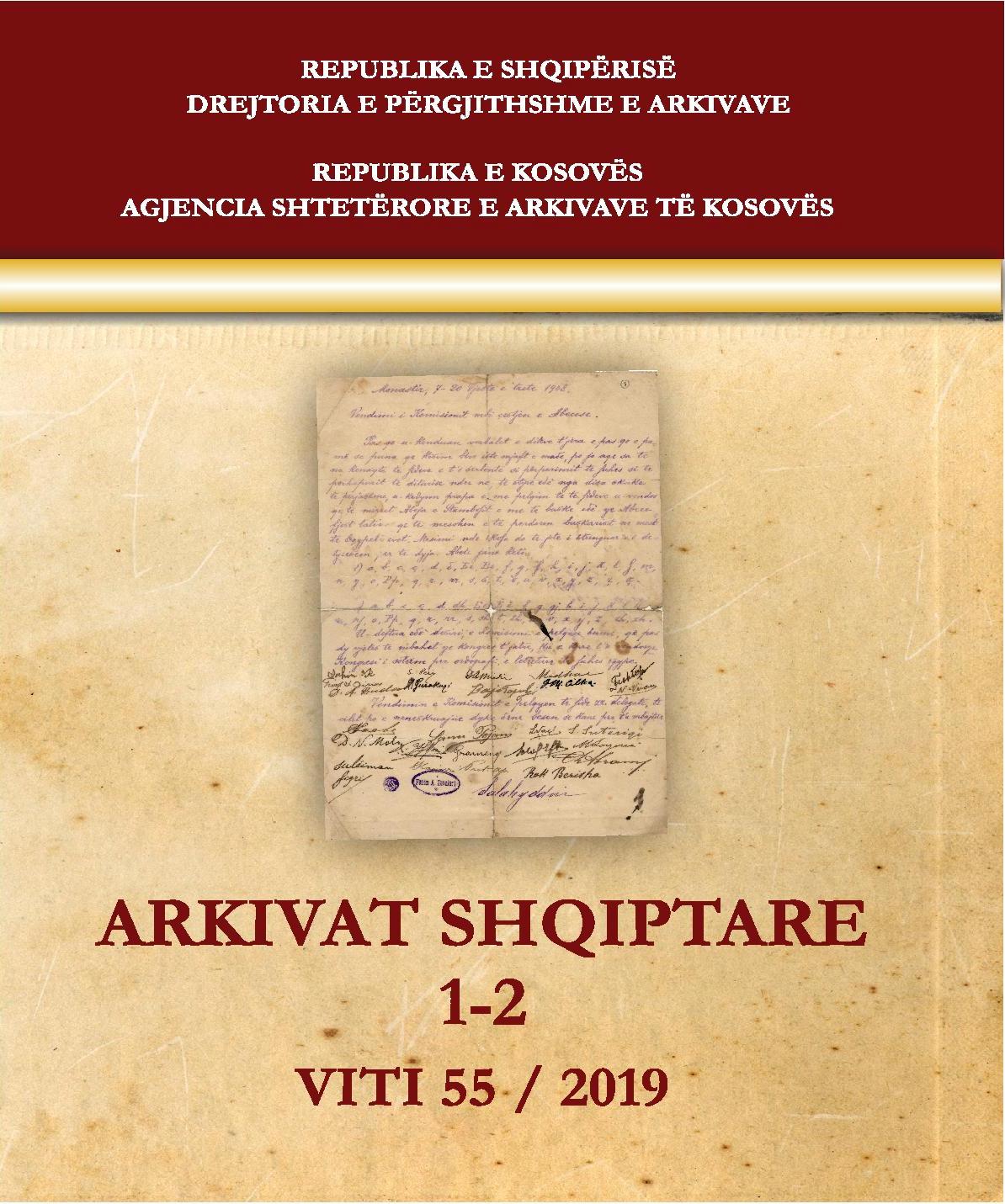
The word Archive in our mind definitely gives us a lot of thoughts. The first thought would certainly be for a classical archive, an archive filled with original documentation of different times, an archive filled with funds and collections of legal or natural persons, but that all these documents different scholars, researchers need to go to the archive to be able to do different research. Meanwhile, the second opinion regarding this word would be an archive with many documents where researchers have access to what they are looking for from the computer, where it is known that nowadays this form of use in many different archives of the world is very applicable where we are not far from it. The most frequent users of archives who were taught that most of the time they have before them the archives and classical documentation now have in front of them an electronic archive completely different from the classic one but above all with the same role and importance that archives have and that has recently become very widespread. Within the archive which preserves, processes, arranges classical documents on paper, now each archive has its own part that deals with the electronic storage of documents. Electronic documents are notes where the information is such that it is suitable for research, processing and transfer with the help of digital computers and at the same time very convenient for the user. Nowadays, great importance is paid to the development of this archive, which is much more convenient but also more demanding.
More...
In this article we have chosen to talk about a great historical figure, which has left traces during its course, the figure of Ismail Qemal. In the History of Albania and the Albanian people there are many dates and historical figures that have left traces during its course. Precisely for this reason and today I will try to give a brief overview of what documentary sources are stored today in the funds of the GDA (AQSH), for the figure of Ismail Qemal.
More...
This modest paper addresses the methods and importance of document management in particular the classification of information in official documents. In the Republic of Kosovo, the classification and storage of information, including security verification, is regulated by legal acts, the law on information classification and security verification and other bylaws for information classification. This article will elaborate on the main points related to criteria and levels of classification and declassification of information, defined deadlines of classified information, competencies for classification, degradation and raising of the level of classification, dissemination of Classified Information and their physical security, access to classified information and security verification according to the law, etc.
More...
The Association of Albanian Writers and Artists "Pope Clement XI Albani", in Sweden (SHSHASHS), as an association founded on November 26, 2011 in Förslöv, Sweden, has started to collect, preserve, organize and partly publish ( because you still have unpublished) documents and manuscripts of historical value for the independence of the Republic of Kosovo and the Albanian national cause. The establishment of SHSHASHS has become the most central association, as a Historical Archive, with the fund of archival materials obtained from associations and distinguished activists in Sweden. The entire fund of the archive, collected by the leadership of SHSHASHS for eight years in a row is stored in the office of the Association of Albanian Writers and Artists "Pope Clement XI Albani", in Sweden, and digitized courses for the 9 published treasures have been delivered, in based on the signed cooperation agreement, the State Agency of Archives of Kosovo and the Albanological Institute - Prishtina. In the 10 issues of the book National Treasury of the Albanian Diaspora in Sweden, 3908 documents have been published, which are the best evidence of the efforts of Albanian emigrants in Sweden on the issue of Kosovo and the Albanian issue in general. Those documents consist of: List of aid for Kosovo, signed by certain commissions; Protocoled and stamped receipts; 3% Government Fund Reports; Central Commission Fund reports of 3%; Reports of Regional Commissions in Sweden; Declaration sheet; Minutes; Various decisions by the Founding Assemblies; List from the beginning of the first schools in Sweden; LDK with its sub-branches; Important articles from the Swedish media; Photos from the scene. The National Treasury Book of the Albanian Diaspora in 10 volumes, has over 6300 (six thousand of three hundred) pages. They were created by 124 groups, members of the Association of Albanian Writers and Artists "Pope Clement XI Albani" in Sweden. In this paper, I have focused on 10 volumes of the book National Treasury of the Albanian Diaspora, which contain a special archive, in itself. I have appreciated that the enlightenment of the facts that have been published in this book are of interest to scholars of various fields, who may continue to search for the good of history and enrichment of Albanian archives.
More...